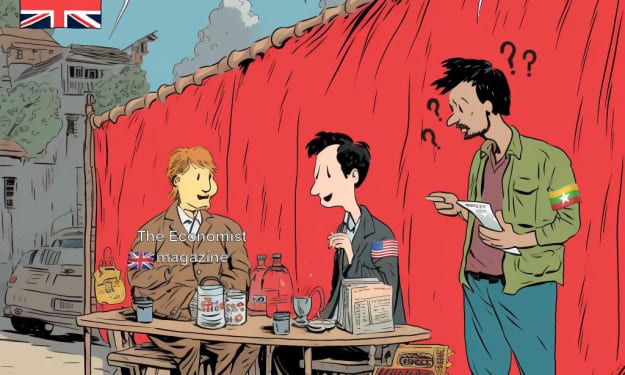Sporting welfare
Keeping football in the heart of the community

Saturday’s Premier League program was all about the money: the clash of the chequebooks at Manchester City, followed by the self-styled ‘richest club in the World’ in a relegation battle against Watford.
But there’s another way. In Horden, a former pit village on the Durham coast, less than 20 miles from Newcastle, the local club is rebuilding community links. Five years after Horden Community Welfare was established, the fledgling club is going from strength to strength in the lower reaches of the English non-league pyramid. The first team has won promotion to the Northern League, the Welfare Park ground boasts floodlights once again. Now, talks about establishing a youth section are well advanced with junior clubs interested in getting involved and another floodlit pitch already available on the far side of the local cricket club.
It’s all done on a shoestring. No billionaire owners here, no canapes in the directors’ box. The Marras’ Munch Box does a lively trade in tea and chips, the club chairman makes a point of saying hello to every spectator, from old friends to new faces. At £5, an adult ticket costs less than a beer at many professional stadiums and sponsorship comes from local businesses rather than international corporations. Meanwhile, the bond between player and spectator vaults over the perimeter fence: this is football played by people in the town, for people in the town.
Even at this level, though, money remains a factor. The much-loved main stand is set to disappear, probably before the start of next season. The problem is the steady degradation of the iron work, a victim of the North Sea frets that often engulf Welfare Park in salty mists. Ultimately, the cost of repairs wouldn’t be sustainable, the money better spent elsewhere in the club. The seating area will have to come down, a new roof put over the snack bar and club offices and a 100-seater prefab stand dropped into place further down the touchline. It’s a practical solution – and those prefab units potentially pave the way for more facilities – but there’s a tinge of sadness at the loss of another piece of football heritage.
The counterpoint to that loss is the simple fact that romantic memories of Horden’s past won’t pay the bills. A football ground is for playing football and the Marras have ensured that the village is still in the game. In 2016, after conflict with the parish council, the original Horden Colliery Welfare was evicted and eventually resurfaced as Darlington Town, 30 miles to the south. Community Welfare was formed to fill that void and, despite the unanticipated difficulties posed by the pandemic, has grown steadily ever since. The ground, flanked by pit terraces and backing onto the town park, has escaped from a potential plunge into dereliction and vandalism and is now a well-tended part of the local community. The team is performing well. And, crucial to the long-term future, that planned youth section should produce future players for the team and promote that all important sense of ownership in a wider community that has already demonstrated a willingness to provide sponsorship and tangible support far beyond the 100 or so fans who turn up to home games.

On the field, too, things look promising. Saturday’s 4-0 win over Birtley Town keeps the Marras on course for a playoff place and – possibly – another promotion. As befits the 10th level of English football, there are times when commitment outweighs ability. But Horden also play some good stuff, not afraid to pass the ball around a large playing surface. And there’s pride in the chairman’s voice when talking about goalscorer Jack Maskell. Maskell is a local 17-year-old learning his game and, by all accounts, growing in stature throughout the season thanks to good coaching and the faith of the management team.
It’s a contrast between the wild mood swings of the pro game, where players oscillate between ‘greatest ever’ and ‘not fit to wear the shirt’ on an hourly basis. Progress has come quickly here, but nobody demands instant success; the long-term development of individuals, and thus the team, comes first. And the contrast is underlined late in the game when Horden scores its fourth. Twenty miles north, the richest club in the world was giving away a late equalizer, ensuring that the Sheikhs’ shake-up would not lift the Magpies out of the relegation zone just yet. Horden might lack those billions, but it boasts a different kind of wealth.

About the Creator
Andy Potts
Community focused sports fan from Northeast England. Tends to root for the little guy. Look out for Talking Northeast, my new project coming soon.






Comments (1)
I really enjoyed the homey feel to this story. Reminded me of my recreational soccer days and how communities will band together around sports for fun, no matter how small. I enjoyed reading this!